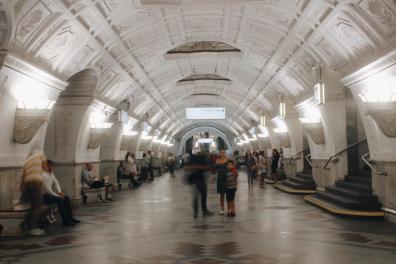Discover the language
The Russian language
Russian is an Indo-European language of the Slavic group, (to which Ukrainian, Belarusian, Polish, Sorbian, Czech, Slovak, Bulgarian, Macedonian, Serbian, Croatian and Slovenian belong). Modern literary Russian was born in the mid-18th century, with Lomonossov's grammar, which brought together in a single system the elements of spoken Russian and Slavonic, the written language of the Orthodox Church, created in the 9th century by the two monks Cyril and Methodius for the evangelization of the Slavs. Russian came into its own in the early 19th century, with the great poet Alexander Sergeyevich Pushkin (1799-1837). Just as English is the language of Shakespeare, French is the language of Molière, Russian is the language of Pushkin.
Cyrillic script and Russian alphabet
It's the Cyrillic script (derived from the 10th-century Greek alphabet) that was adopted by all Slavs of the Orthodox religion, and is used today to write Serbian, Macedonian, Bulgarian, Ukrainian, Belarusian and Russian.
A language of culture, science and business
Russian is the official language of the Russian Federation. It is also the language of communication within the Commonwealth of Independent States (CIS) and the second official language of Belarus. Russian is the mother tongue of 145 million Russians living in Russia or in various countries of the former USSR (10 million Russians in Ukraine, 6 million in Kazakhstan, almost 1 million in the Baltic States), to which must be added the Russian speakers of the large émigré communities in the USA, Israel and elsewhere. Russian thus counts over 280 million speakers worldwide.
An international language
Outside the borders of Russia and the CIS, Russian, one of the 6 official languages of the UN, has the status of a major language of international communication thanks to the worldwide importance of Russia and Russian culture, both scientific, in the field of aeronautics for example, and artistic or literary.
A professional asset
As an assertive energy power and a developing industrial power, Russia has opened up to the international market and is becoming an essential economic and cultural exchange partner for Europe.
